.gif)
After using the OnePlus 11 5G as our daily driver for three weeks, we share our thoughts and experiences.
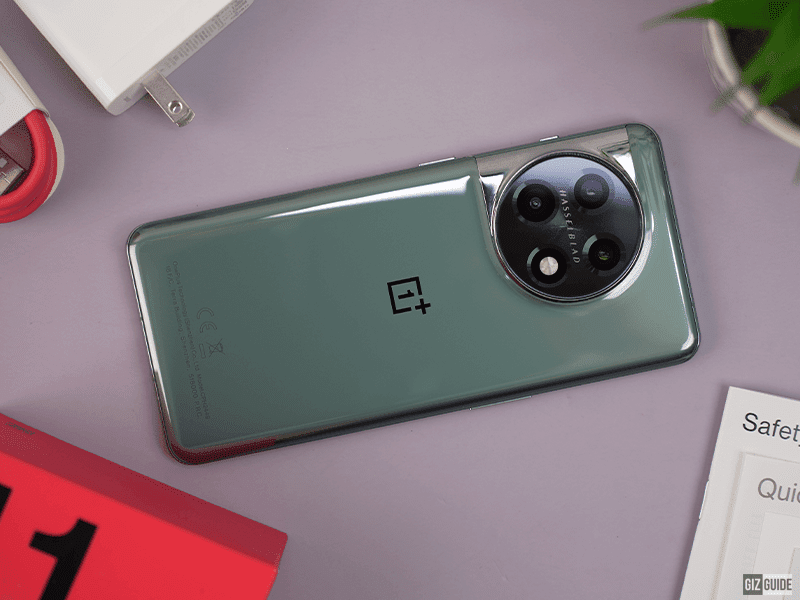 |
OnePlus 11 in Eternal Green
|
To recap, the OnePlus 11 5G comes with a 120Hz 6.7-inch QHD+ AMOLED screen with 1300nits peak brightness. Inside is the Qualcomm Snapdragon 8 Gen 2, LPDDR5X RAM, UFS 4.0, and a 5,000mAh battery with 100W wired charging.
At the back are the Hasselblad triple rear cameras made up of a 50MP IMX890 primary camera, a 48MP IMX581 ultra-wide camera, and a 32MP IMX709 2x telephoto camera with an LED flash while in front is a 16MP selfie camera.
In the Philippines, the OnePlus 11 5G starts at PHP 45,999 for the 8GB/128GB variant.
Let's dive into the review!
Multimedia Experience
 |
| Curved display |
In front is the 6.7-inch AMOLED screen with a 120Hz refresh rate and a QHD+ 3216 x 1440 resolution. The panel is fast, bright, vibrant, and crisp just as what you would expect from a 1440 panel. It isn't the brightest display for the category but it is more than bright enough to be readable under direct sunlight.
It supports 10 points of multitouch which results in responsive and accurate taps and gestures.
On top is the punch hole that houses the front-facing camera. Above the panel and hidden in the top bezel is the super slim earpiece. The panel curves to the side which makes the side bezels look even thinner than it really is. Both the top and bottom bezels are noticeably thicker than the aforementioned side bezels.
Pre-installed on top of the screen is a thin screen protector that scratches easily. We recommend removing it and installing a better one.
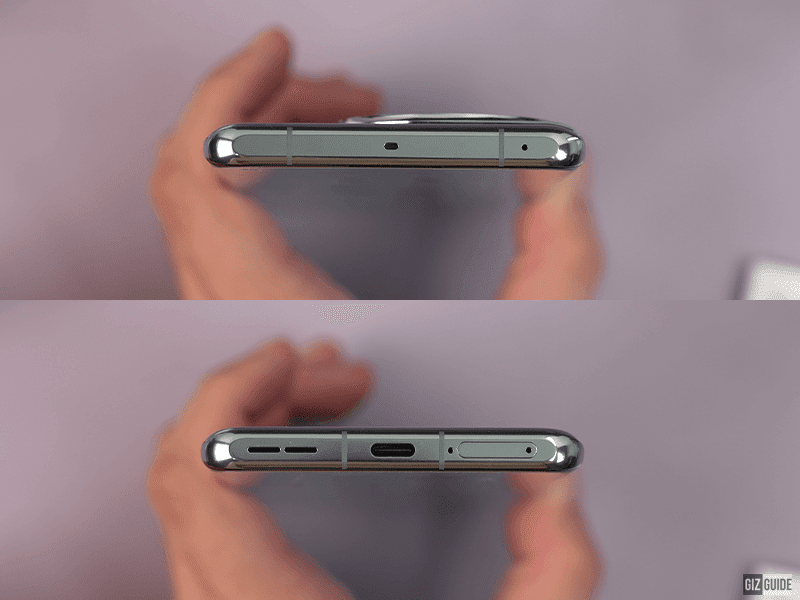 |
| Stereo speakers |
For audio, the phone is equipped with a stereo set-up that is made up of two speaker holes at the bottom and one speaker hole on top.
The maximum volume is more than enough to fill an average-sized living room. I am happy to report that both speakers are powerful enough to not get muffled when covered by our fingers.
The microphones do a great job of picking up sounds from a meter away while the noise-cancellation for calls is good too.
Cameras
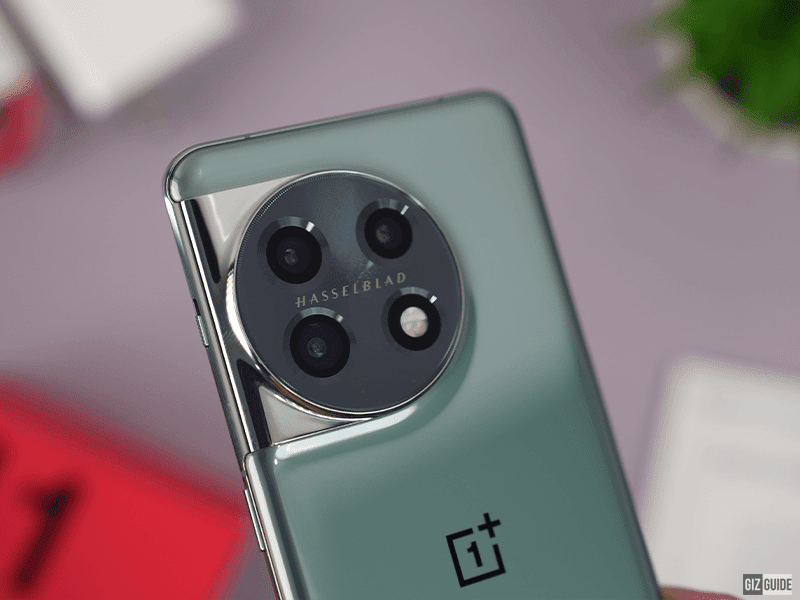 |
| Rear cameras |
As mentioned earlier, at the back is the 50MP f/1.88 primary camera with IMX890 1/1.56-inch sensor and 5-axis OIS, the 48MP 114.5 degree ultra-wide camera with 4cm Macro, and a 32MP 2x telephoto with 1/2.74-inch RGBW sensor with an LED flash.
The stock camera app comes with the following modes: Photo, Video, Night, Portrait, XPan, Pano, Film, Slo-Mo, Timelapse, Long exposure, Dual-View, and Tilt-shift.
The Pro mode comes with controls for ISO (100-6400), Shutter Speed (1/8000-30 secs), EV (+-3), Focus, White Balance, and zoom (1x, 3x). The 3x zoom is digital where the app crops in to make it look like it is zoomed in.
Rear Camera Samples
 |
| Rear camera daylight 1x |
 |
| Rear camera daylight 2x |
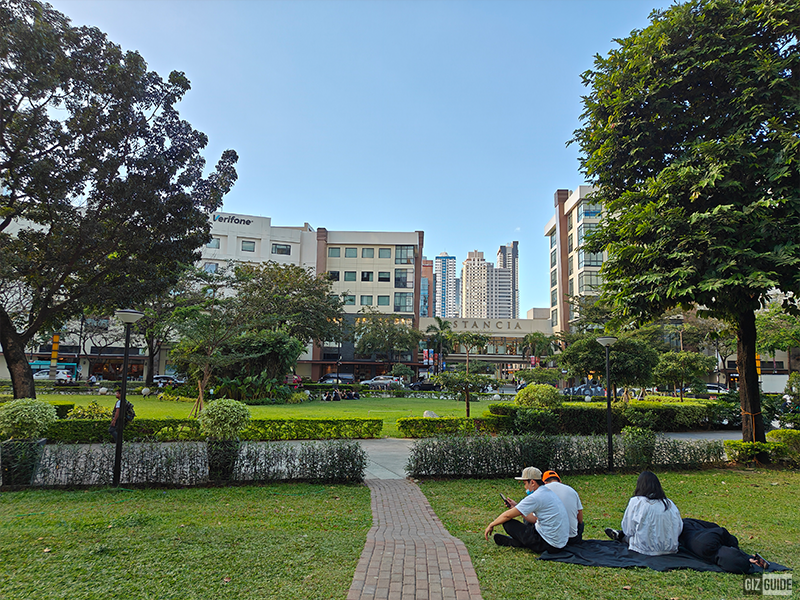 |
| Rear camera daylight ultra-wide |
The primary camera can capture stunning daylight images with good sharpness, plenty of detail, and deep contrast. In most situations, the colors from the images coming from the 1x and ultra-wide camera pop but will lose its vibrancy when using the 2x crop.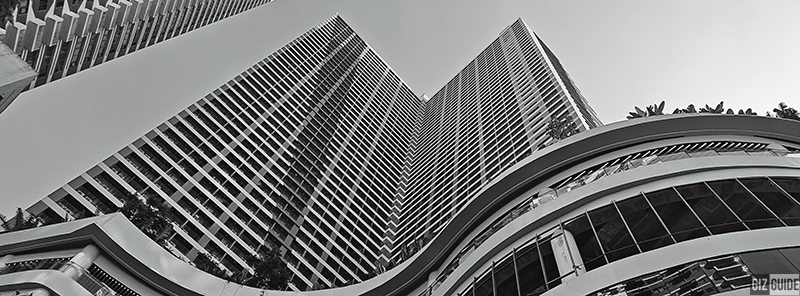 |
| X-Pan mode with black and white filter |
There is also a special X-Pan mode with a color filter and a monochrome filter that simulates the legendary 65:24 aspect ratio that the Hasselblad X-Pan film camera was known for.
 |
| Close-up main camera |
The camera app switches between the main camera and the ultra-wide camera when shooting close-up. The closer the phone is to the subject, the more it will switch to ultra-wide. However, we recommend shooting with the main camera for close-ups only. The sharpness, detail and contrast are noticeably better. However, like in daylight, the white balance skews to warmer tones.
 |
| Rear camera 1x |
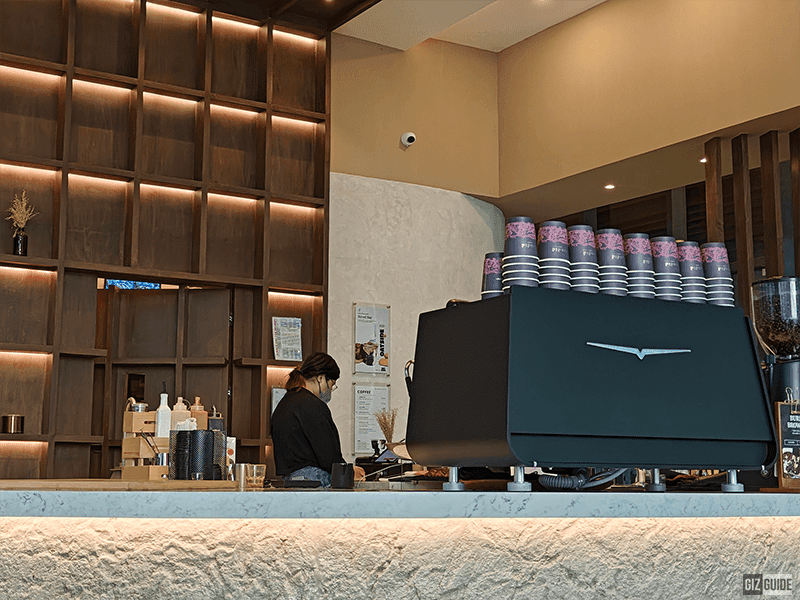 |
| Rear camera 2x |
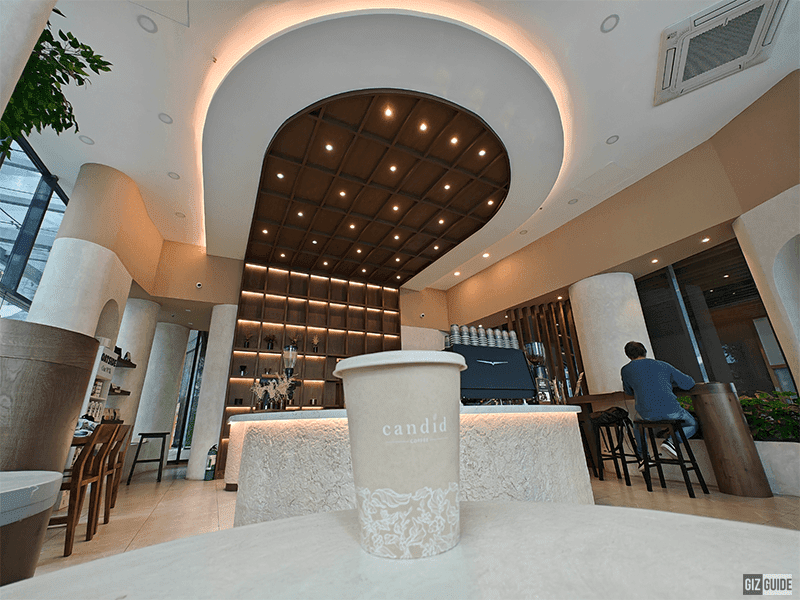 |
| Rear camera ultra-wide |
Indoors, the images retain the quality of daylight that are sharp, detailed, and contrasty. In this situation, the color balance is spot on.
 |
| Low light 1x |
 |
| Low light 2x |
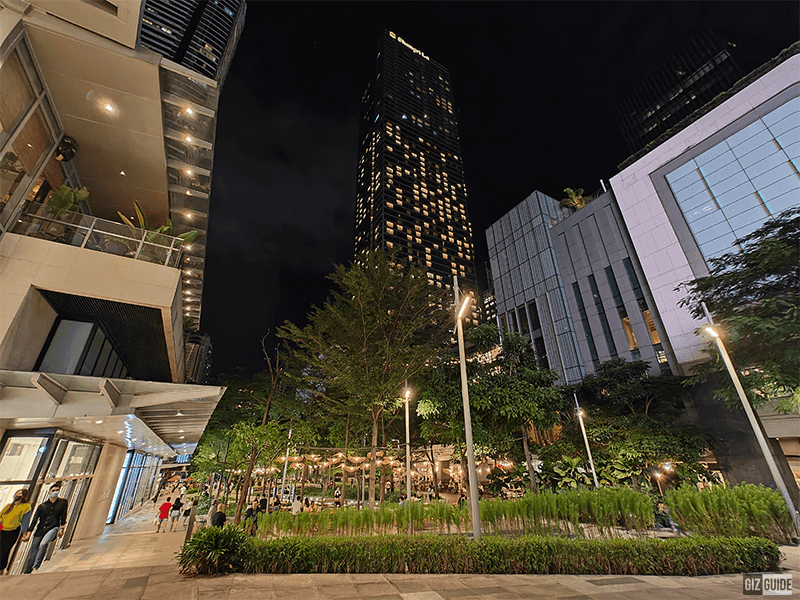 |
| low light ultra-wide |
For low light, the images are surprising. The image is vibrant and contrasty while having minimal noise. However, it has lost sharpness and detail. This may be a result of the noise reduction that reduces noise but trades it for sharpness.
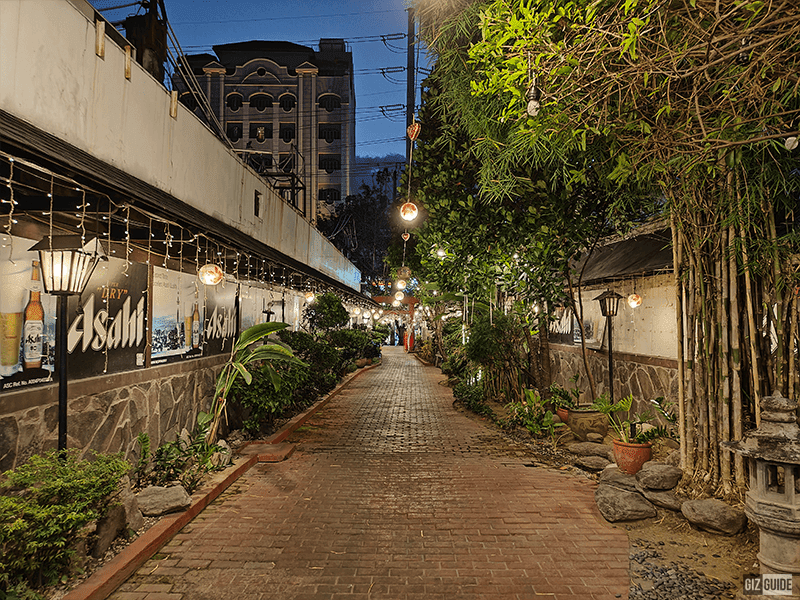 |
| Rear Camera 1x |
 |
| Rear camera night mode 2x |
 |
| Rear camera Night mode ultra-wide |
The Night mode significantly improves the sharpness, detail, and contrast. We highly recommend using the night mode in low light when the subject is not moving to get the best image.
Overall, the rear cameras' software needs tweaking in the color temperature but otherwise, the images are not the best in class but are more than acceptable for their price point.
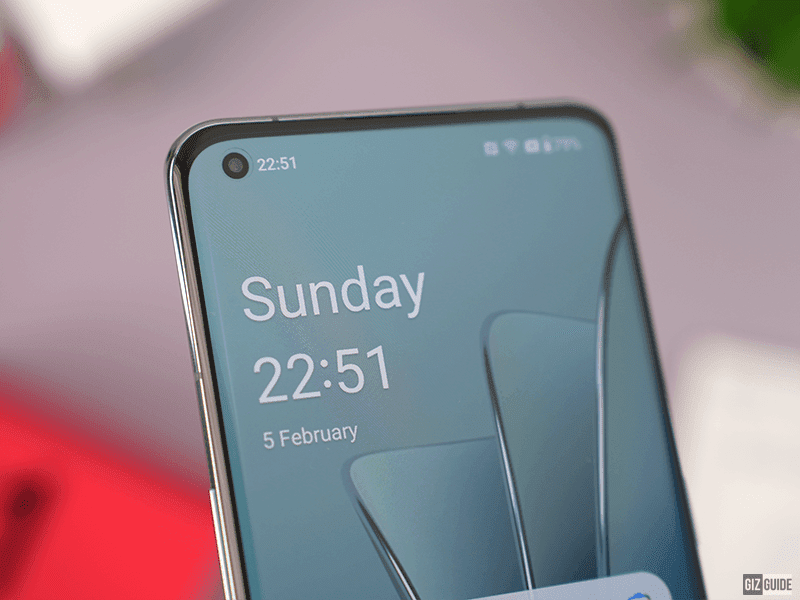 |
| Selfie camera |
On the punch hole is the aforementioned 16MP f/2.45 selfie camera.
Only the Photo, Video, Portrait, and Night modes are available for the selfie camera.
Selfie Camera Samples
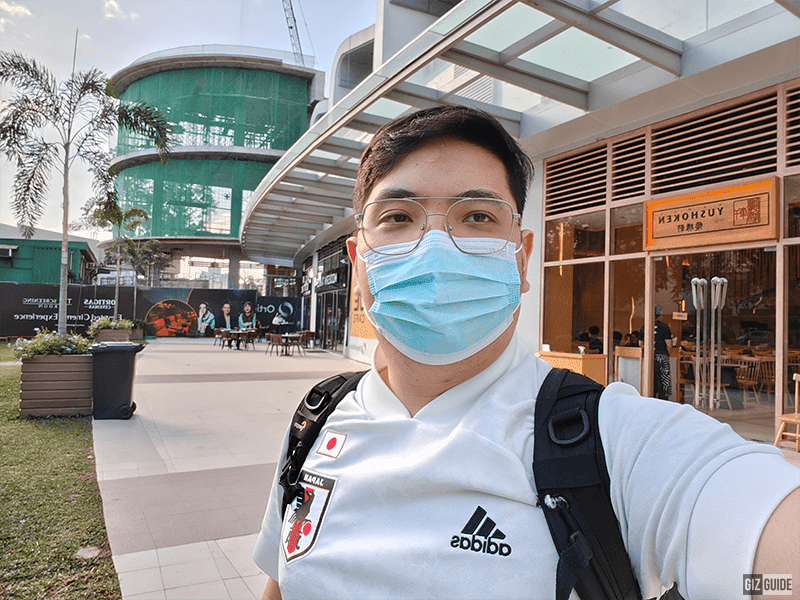 |
| Selfie daylight |
The daylight selfie is sharp enough with plenty of detail, vibrant color, and strong contrast. Our only concern is that the images are not as sharp when compared to phones in the same category.
 |
| Selfie Portrait |
The edge detection of the portrait mode is very good but struggles with individual hair or fiber strands. Otherwise, the artificial bokeh is somewhat pleasing despite not being the most natural implementation we've seen.
 |
| Selfie indoors |
Indoors, the image has good color and contrast but may fall behind in sharpness and detail when compared to its peers.
 |
| Low light selfie |
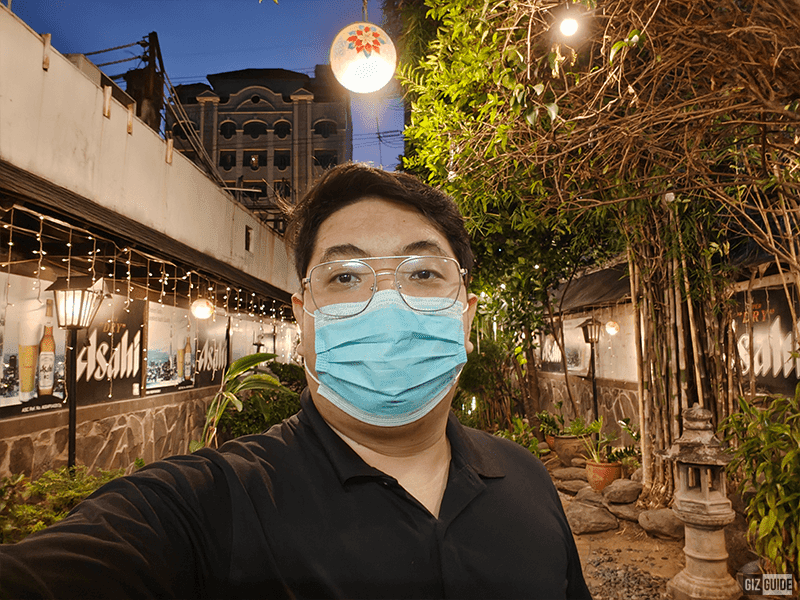 |
| Night mode selfie |
In low light, the selfie camera's images have minimal noise however are noticeably softer and with less detail.
The Night mode significantly improves the sharpness and detail of the low-light selfie that we recommend using as long as you can stand still.
Overall, the front cameras produce images with good color and contrast but lose their sharpness and detail in low light despite the minimal amount of noise.
The OnePlus 11's rear camera can capture up to 8K at 24 fps or 4K at 60 fps while the selfie camera can capture up to 1080p at 30 fps only. There is no option to change frame rates for the front-facing camera.
Surprisingly, the ultra-wide camera can only capture up to 4K at 30fps.
The footage is similar to the photos where the sharpness, detail, and contrast are fine in daylight but will struggle with white balance and low-light scenes.
Performance
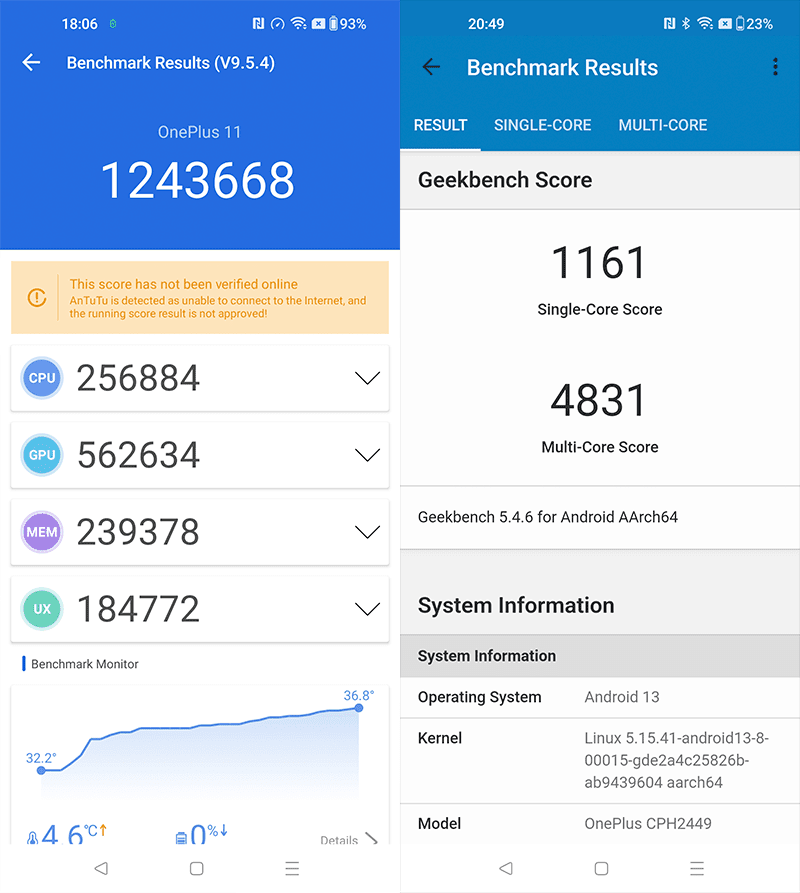 |
| AnTuTu and GeekBench |
To recap, the OnePlus 11 comes with a 4nm Qualcomm Snapdragon 8 Gen 2 octa-core processor, New Adreno GPU, LPDDR5X RAM, and 128GB UFS 3.1/256GB UFS 4.0.
The phone also features RAM expansion where when there is a surplus of storage, the phone use up to 12GB to expand the RAM. In our experience, it helps a little in making the phone a bit smoother when opening many apps. But, do not expect it to perform as well as its primary physical RAM. So far we have yet to run a workload heavy enough to utilize it.
 |
| 3DMark and CPDT |
OnePlus 11 benchmarks:
- AnTuTu - 1,243,668
- Geekbench 5 - 1,161 (single-core), 4,831 (multi-core)
- 3D Mark WildLife - 3,618 at 21.70 average fps
- CPDT - 769.10 MB/s sequential read speeds and 754.61 sequential write speeds
The OnePlus 11 5G's scores in AnTuTu, Geek Bench, and 3DMark are what we expect with the included specs.
Our review unit is the 16GB LPDDR4X and 256GB UFS4.0 model. The results from CPDT are fast but we have seen faster read speeds from other smartphones with UFS 4.0 SSDs, but these are one of the fastest write speeds we've seen on a smartphone yet.
 |
| Genshin Impact Graphics |
Like most Snapdragon 8 Gen 1-equipped smartphones last year, the Oneplus 11 managed to unlock the Medium graphics settings of Genshin Impact as the default. The gameplay is smooth even when the screen fills up with objects and animations. The phone stayed cool for the first 30 minutes of gameplay but slowly warmed up. It maintained a warm temperature and never got alarmingly hot.
For security, the OnePlus 11 5G has an optical under-display fingerprint sensor and face unlock. Initial set-up and subsequent uses are almost instantaneous. The face unlocks only struggles when the camera is dirty or when we are wearing a mask and sunglasses.
Regarding connectivity, we have the following: eSIM, dual NanoSIM, WiFi 7, 5G, 4G LTE, Bluetooth 5.3, OTG, NFC, GPS, A-GPS, and GLONASS.
It is one of the first devices to come with WiFi 7 and one of the few that have Bluetooth 5.3.
 |
| Battery usage |
Inside the phone is a large 5,000mAh battery. Our usual PCMark Battery test kept failing at the 14-hour mark but with less than ten percent battery left.
In our daily use, it managed to last for more than 6 hours and 13 minutes with a surprising 29 percent battery left. This was our daily driver that was constantly connected to either WiFi or 5G. Its battery performance is impressive.
The massive battery charges via USB-C with the 100W charger. It takes around 30 minutes to charge from 0 to 100 percent.
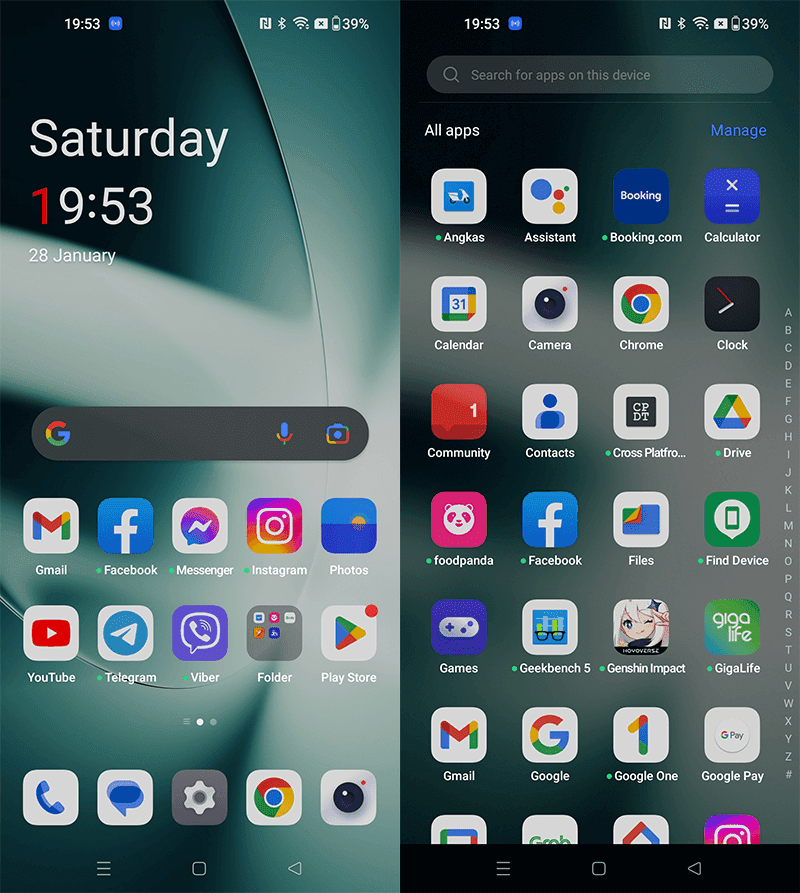 |
| OxygenOS |
It is running on OxygenOS 13.0 based on Android 13. Visually, it has elements that are reminiscent of the older OxygenOS iconic visuals but this feels more similar to ColorOS. Like ColorOS, it is one of the snappiest skins on the market with a lot of features and customizations. If you liked the previous generation, you will like this too with the addition of the Android 13 features. If you've never liked the recent versions of OxygenOS, then there is little new that will make you like it.
There is a number of pre-installed apps and services that can be uninstalled. It adds to the initial setup. Some apps can only be disabled which was the only way to stop the annoying notifications.
Pros - Solid build, jewelry-like design, Hasselblad cameras, solid SoC, long-lasting battery life, 100W fast wired charging, Alert slider,
Cons - 128GB is UFS 3.1, no wireless charging, white balance of cameras can be tweaked in firmware
OnePlus 11 5G Specs
Display: 6.7-inch Gorilla Glass Victus protected 10-bit LTPO Super Fluid AMOLED screen w/ 120Hz refresh rate, QHD+ 3216 x 1440 resolution at 525 ppi
CPU: 3.18GHz 4nm Snapdragon 8 Gen 2 octa-core processor
GPU: New Adreno
RAM: 8GB/16GB LPDDR5X
ROM: 128GB UFS 3.1/256GB UFS 4.0
Back Camera: 50MP f/1.8 IMX890 w/ Multi Autofocus, 5-axis OIS + 48MP f/2.2 IMX581 ultra-wide-angle + 32MP f/2.0 IMX709 telephoto + LED flash
Selfie Camera: 16MP f/2.45
Battery: 5,000mAh w/ 100W SUPERVOOC charging
OS: Android 13 w/ OxygenOS 13
Connectivity: WiFi 6, 5G, 4G, Bluetooth 5.3, OTG, GPS, NFC, dual SIM (nano)
Sensors: Accelerometer, light, orientation, proximity, gyroscope, sound, magnetic
Others: In-Display fingerprint sensor, Alert Slider, IP64 water and dust resistance, USB-C, Colors: Eternal Green, Titan Black
Dimensions: 163.1 x 74.1 x 8.5 mm
Weight: 205 g
Price: PHP 45,990 (8GB/128GB), PHP 49,999 (16GB/256GB)
Verdict
 |
| Web surfing |
OnePlus 11 5G returns to form and offers outstanding value with flagship performance for a relatively affordable price while only giving up wireless charging and a few other minor gripes.
The Qualcomm Snapdragon 8 Gen 2 offers powerful performance in normal tasks and gaming while offering outstanding battery efficiency even when constantly connected to WiFi and 5G.
Lastly, the front-facing cameras may just be decent for the price range but the rear Hasselblad cameras produce stunning images with sharp, detailed, and contrasty images. It just needs white balance accuracy tweaking.
We recommend it for smartphone enthusiasts that want value for money and can live with minor nitpicks and the lack of wireless charging.
What do you think guys?
Build/Design - 4.25
Multimedia Experience - 4.25
Cameras - 4
Performance - 4.5
Average - 4.25/5

.gif)
















































Post a Comment